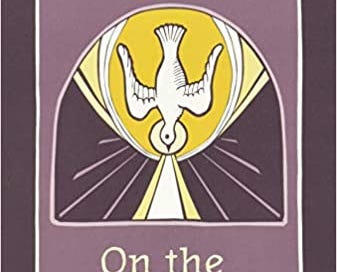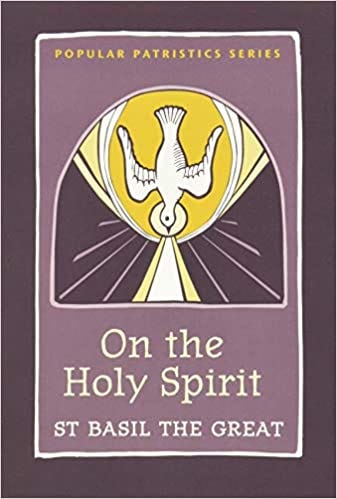Basil the Great on the Holy Spirit
Athanasius’s On the Incarnation is a classic work of Christian literature—one that deserves to be read by all believers. It captures some of the key arguments for the Nicene understanding of the full deity and fully humanity of Christ as they were being hammered out in the contentious Arian controversy of the fourth century.
Less known—but no less important—is the controversy of the later fourth century over the deity and personhood of the Holy Spirit. A group of “Spirit fighters” waged war on the orthodox belief in the Spirit’s consubstantiality with the Father and the Son. Among those leading the defense of orthodoxy was Basil the Great, one of the three renowned Cappadocian fathers, along with Gregory of Nazianzus and Gregory of Nyssa. Basil’s On the Holy Spirit deserves to stand alongside Athanasius’s work as a key fourth-century text upholding orthodox Trinitarian theology. And perhaps there is no better time to revisit this work than now, when one recent study shows that “more than half of self-identified Christians in America say the Holy Spirit is not a real, living being.”
This work is made accessible in a modern English translation through the Popular Patristics Series: Basil the Great, On the Holy Spirit, ed. Stephen Hildebrand (Yonkers, NY: St. Vladimir’s Seminary Press, 2011). Hildebrand observes that, although Basil didn’t live to see it, his legacy lies in the language about the Spirit adopted in the Constantinopolitan Creed of 381.
Near the end of his book, Basil makes two striking statements about the nature of humanity and theology. First, he says, “Everyone is a theologian, even those who have stains on their souls” (120). This line captures well the fact that we all think thoughts about God, no matter how sick and sinful we may be. The question is whether we will think true thoughts about God and thus think true thoughts about the world we inhabit.
Second, he observes, “Every man madly and stupidly thinks that it is owed to him that he rule others rather than listen to someone else” (120). How true that humans are quick to think that everyone should follow their opinion, and how slow we are to listen to others! Basil wisely observes the need for humility in our inevitable search for understanding God and our reality.
With that in mind, what does Basil say about the Holy Spirit? In one particular passage he captures something of the beauty and diverse operations of the Spirit:
Whoever hears “spirit” cannot impress on his mind a circumscribed nature, or one subject to changes and alterations, or one at all similar to creation. Rather, he must advance to the highest heights in his thoughts and conceive of a necessary, intellectual substance that is infinite in power, unlimited in greatness, immeasurable by time or ages, and generous with the goods that it has. Everything that needs holiness turns to him. All that live virtuously desire him, as they are watered by his inspiration and assisted toward their proper and natural end. He perfects others, but himself lacks nothing. He lives, but not because he has been restored to life; rather, he is the source of life. He does not grow in strength gradually, but is complete all at once. He is established in himself and present everywhere. He is the source of holiness, an intellectual light for every rational power’s discovery of truth, supplying clarity, so to say, through himself. He is inaccessible in nature, but approachable in goodness. He fills all things with power, but only those who are worthy participate in him. He is not participated in all at once but shares his energy in “proportion to faith” (Rom 12.6). He is simple in substance, but manifold in powers. He is present as a whole to each and wholly present everywhere. He is portioned out impassibly and participated in as a whole. He is like a sunbeam whose grace is present to the one who enjoys him as if he were present to such a one alone, and still he illuminates land and sea and is mixed with the air. Just so, indeed, the Spirit is present to each one who is fit to receive him, as if he were present to him alone, and still he sends out grace that is complete and sufficient for all. (53)
This thick description of the Spirit captures a great deal about him in one compact place. And one can spend a good bit of time chewing on the ideas here. The Spirit’s grace, holiness, light, and life are what we desperately need, and we cannot hope to have them unless the Spirit truly is a divine person.
One thing that is so striking about Basil’s book is how much time he spends defending the Spirit’s deity and personhood using Scripture. He values tradition as well, but the bulk of his volume puts forth Bible passage after Bible passage to lead us to the unavoidable conclusion that we must confess the Spirit to be God. Here is a small taste of this aspect of his book:
When through his illuminating power we fix our eyes on the beauty of the image of the unseen God [stop for a moment to think about the ironic wonder of this statement!], and through the image are led up to the more than beautiful vision of the archetype, his Spirit of knowledge is somehow inseparably present. He supplies to those who love to see the truth the power to see the image in himself. He does not make the manifestation from the outside, but in himself leads to knowledge. For, as “no one knows the Father, except the Son” (Mt 11.27), so “no one is able to say Jesus is Lord, except in the Holy Spirit” (1 Cor 12.3). He has not spoken through the Spirit but in the Spirit. And, “God is Spirit, and those who worship him must worship him in Spirit and truth” (Jn 4.24). As it is written, “in his light we will see light,” that is, in the illumination of the Spirit, “the true light that enlightens every man coming into the world” (Jn 1.9). And so, he shows in himself the glory of the Only-begotten and furnishes to true worshippers the knowledge of God himself. The way, then, to knowledge of God is from the one Spirit, through the one Son, to the one Father. (82–83)
Basil makes other biblical arguments, pointing, for example, to the sin against the Holy Spirit (Matt. 12:31) as proof of his deity (82). He also traces out several passages to show that the Spirit’s dignity is seen through his names, works, and graces, as well as in creation (84–87). In one striking statement, he asks how the one who gives life to all being can be in need of life himself (95). And the arguments continue.
Modern readers may quibble with Basil at times, but On the Holy Spirit offers a valuable peak into fourth-century Christianity, a meaty discourse on the biblical and theological arguments for Trinitarian orthodoxy, and an edifying reflection on the Holy Spirit, who, as the Niceno-Constantinopolitan Creed puts it, is “the Lord and giver of life.”




